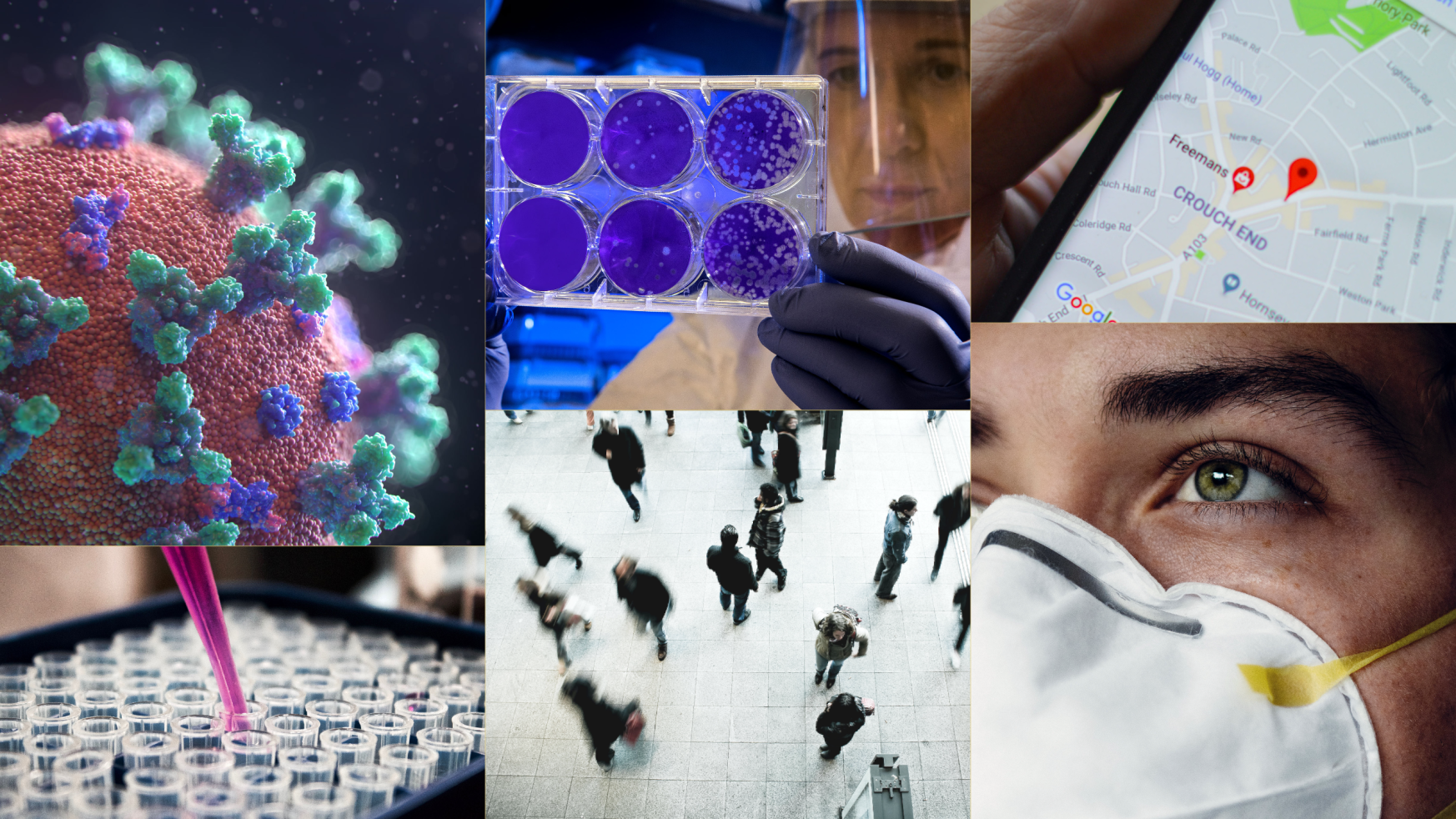UC Merced Researchers Developing Rapid COVID Solutions
with Technology
May 21, 2020

By Leigh Bernacchi, UC Merced
The University of California, Merced, is rising to meet the greatest challenge of our lifetimes. Because of their rapid response, innovative engineering and deep ethic to help, UC Merced faculty members have been awarded four grants from the Center for Information Technology Research in the Interest of Society and the Banatao Institute (CITRIS) COVID-19 Seed Fund to address the pandemic.
“Make no mistake, UC Merced researchers are working around the clock on multiple fronts slow down and end this pandemic," said campus CITRIS Director and School of Engineering Associate Dean for Research Joshua Viers, who is also serving as a member of the UC Merced COVID-19 Research Relaunch working group, focusing on identifying measures to accelerate reopening of campus research facilities in a safe and resilient manner. “We are clearly focused on leveraging University of California resources and know-how to solve one of the greatest societal challenges of our time.”
Initially, CITRIS offered $50,000 funding for each of three proposals, but an anonymous donor gave $1.6 million, supporting 22 more projects. Selected from more than 95 proposals, the UC Merced technology projects highlight campus strengths in engineering and health. See the full list of 25 projects here.
The School of Engineering ranks 137th in the country, due in part to the creativity of faculty members such as Professor Colleen Naughton. Recognizing the duration of the pandemic and its impact on basic services such as garbage collection and disposal or water and electricity, Naughton jumped on a unique class of essential workers and their families and communities.
“Like many of you, the pandemic has made me feel anxious. I wanted to use my skills to help,” Naughton said. “From previous work, I knew treatment workers and communities near treatment plants are at higher risk for exposure to pathogens, so I want to help protect them against COVID-19 too.”
The virus has been detected in wastewater across the globe. Naughton will bring her expertise in water sanitation and mapping that she first developed as a Peace Corps volunteer in Mali. With her colleague at UC Davis, Professor Maureen Kinyua, they will quantify and create visual maps of risk around 38 wastewater treatment plants in the Bay Area.
Another project that intersects engineering and health is the mobile, low-cost, scalable, user-friendly sanitizer for various applications, proposed by UC Merced engineering Professor Reza Ehsani. Ozone, a molecule composed of three oxygen atoms that forms a protective barrier to ultraviolet light in the atmosphere, is currently used in food processing to reduce microbes. Ehsani proposes repurposing and redesigning ozone generators for sanitation of indoor areas for food and agriculture. He hopes to have a prototype by the end of the summer.
On the immediate health front, two awards will address developing antibody detection and assess telehealth.
“UC Merced's health sciences faculty are a tremendous resource for addressing the COVID-19 threat,” Director of Health Sciences Research Institute Professor Deb Wiebe said. “Our scientists rapidly have heeded the call to be part of the solution through a range of multidisciplinary research endeavors, including antiviral development, mathematical models to understand viral spread and making telehealth information available to rural communities.”
Public health Professor Denise Payan is working with professors Hector Rodriguez from UC Berkeley and Lorena Garcia from UC Davis to ensure that those most in need of health care and most at risk if exposed to coronavirus have access to telehealth resources. The project calls for building a new database for tracking telehealth use among low-income Californians with chronic conditions and will help make immediate changes to telehealth as needed.
A team of Bioengineering faculty are creating the key to opening society. Professors Wei-Chun Chin, Changqing Li and Jennifer Lu are working to rapidly develop antibody testing to help determine who is “safe.” There have been several limitations in testing, including delay of results — sometimes up to two weeks — false negatives, high cost and lack of materials. The team will address all these issues by using low-cost carbon materials to create a test that reads results within seconds. They will use graphene and carbon nanotubes that look like a rolled up honeycomb. These carbon-based conductive materials have several benefits, including providing direct electrical readouts instead of requiring testing solutions and rinsing.
“These grants not only reflect the science and engineering prowess of our faculty but also clearly demonstrate their willingness to engage in research around societal problems such as COVID-19,” UC Merced Vice Chancellor of Research Sam Traina said.
In addition to seed funding, CITRIS and the Banatao Institute, a multi-campus research institute of the University of California has undertaken other efforts to address the pandemic by mobilizing the CITRIS Invention Lab, a makers space, to fabricate ventilator adaptors to convert consumer-grade sleep apnea devices for clinical use. Throughout its 20-year history, CITRIS has developed technology solutions to respond to society’s greatest problems.